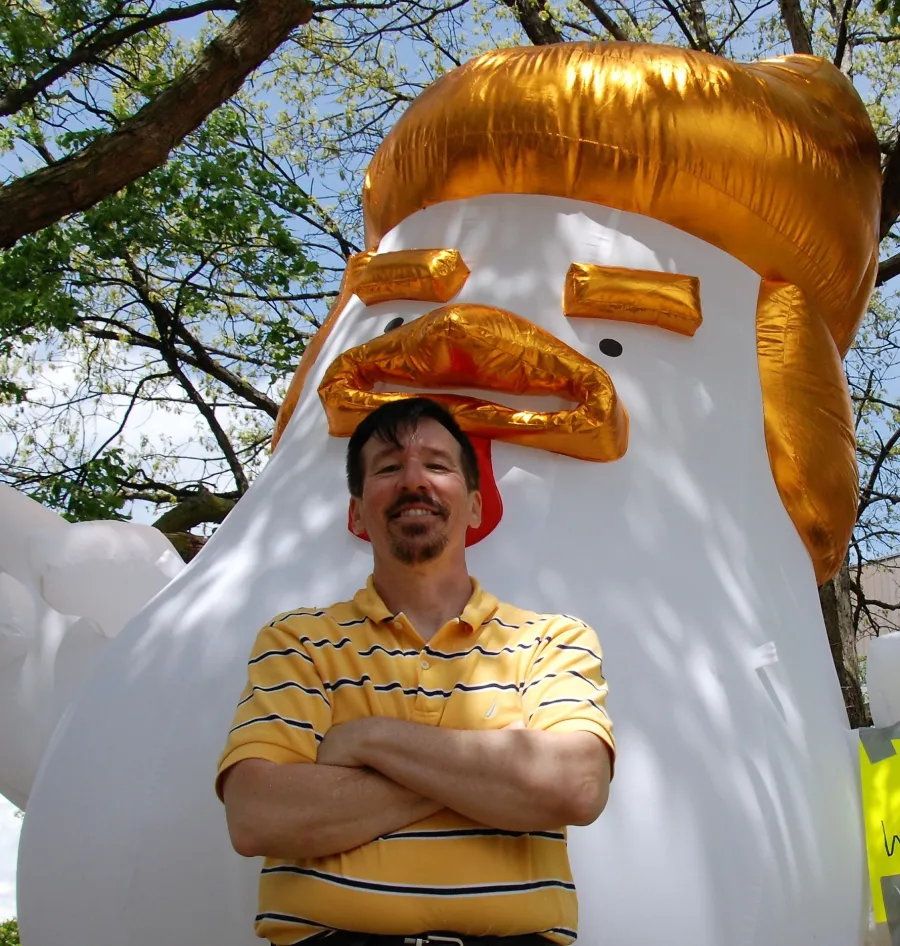'Be proud of your union, your union roots and your union work.'

By BERRY CRAIG
AFT Local 1360
Doug Lowry says if you pack a union card, overcoming Kentucky’s new “right to work” law boils down to the basics.
“Pay your dues and get involved in your union.”
Lowry carries a Communications Workers of America card in his wallet. He’s on Louisville Local 3310’s legislative committee.
The GOP-majority General Assembly passed RTW in January. “There will come a day very quickly in Kentucky when people will make a choice,” said Lowry, who lives in the Falls City.
“‘Am I going to pay my dues, or am I not going to pay my dues?’ It will be time for a lot of people who’ve sat on the fence and have had the fence shoved out from under them to start figuring out which side they’re on.”
Under RTW, hourly employees at a union job site can enjoy union-won wages and benefits without joining the union or paying the union a fee to represent them.
Anyway, up against a fiercely anti-union governor and an equally hostile legislature, unions must, more than ever, forge alliances with like-minded organizations, Lowry said.
“Being a union member is about being in solidarity with all working people and will be about forging effective working relationships with many other groups,” added Lowry, who belongs to Indivisible Kentucky and Kentuckians for the Commonwealth. The former aims to teach progressives how to organize politically in the Trump era and holds members of congress accountable. The latter organizes “for a fair economy, a healthy environment, new safe energy and an honest democracy.”
It’s time, too, Lowry said, for members to show solidarity, that old union byword, by going to union meetings and by speaking up for organized labor in their communities. “You need to find out who your local legislative chair is and how you can get involved in politics from local elections all the way up to the legislature.”
By “involved in politics,” he means more than voting, though that’s vital. “We need union members to be appointed to boards and commissions. We need union members to consider running for office. We need members to be mayors of small cities and to be on city councils.
Members who don’t want to run “should be willing to be trained as a campaign treasurer, a canvasser organizer, or be willing to hit the streets and go door-to-door talking to members and making sure they are registered to vote, making sure they know who their union-endorsed candidate is. In a short elevator speech, all members should be able to say, ‘I’m voting with my union and here’s why.’
“It’s really important that people get involved as active voters and active knowers. You can’t know everything, but pick one issue that you can become a subject matter expert on for your local, your community, and your neighbors.”
He conceded that local union meetings aren’t always well attended. To put more members in the seats “you have to have interesting meetings. You have to talk to people. It’s like church. There are churches you can go to where nobody talks to you, and you go in the door and right back out. You never go back.
“Unions need to be a place where everybody knows your name. You need to know what people care about and are passionate about. It’s important to have a person for every job, but it’s more important to have a job for every person.”
Lowry said that there are many young members “who could and should be union leaders.” He suggested they might start by becoming a steward or by simply “learning what the members need and learning what the company is trying to do. Social media is also a great way for younger folks to become engaged.”
He added, “this is like Christmas holiday for all the big corporations, having the kind of president, the kind of congress, the kind of governor and the kind of legislature we do. People don’t know what is coming down the pike and they may know too late.”
He also urged members not to hide their union light under a bushel. “If you are in a church, a community organization or a civic group, tell them what union you are a member of and tell them how unions have raised wages, how unions have protected older people through pension and health care, how unions have done a lot of good in communities and done it very quietly and, how without a lot of glamour and a lot of attention, are taking care of people in the community.
“Be proud of your union, your union roots and your union work.”
Berry Craig is webmaster-editor for the Kentucky State AFL-CIO and a member of the state AFL-CIO Executive Board.